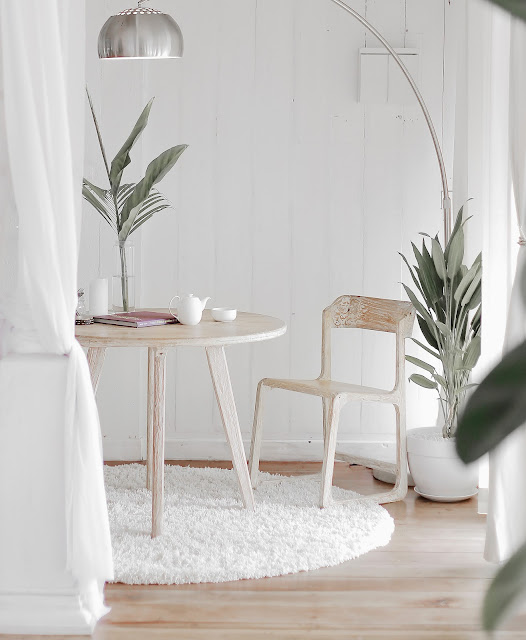The Magic of Owning Less
You might be lazy like me or a bit messy by nature. But that doesn't mean you can't be a minimalist. In fact, becoming minimalist will really help with your housework.
Here's what usually happens.
We create homes that encourage us to be lazy. For example:
- Say we own an excessive number of dishes. Why bother to rinse out the water glass we used an hour ago? Just grab another one. Dishes don't make it to the sink or the dishwasher when we know we can just grab another out of the cupboard.
- Say we own a large number of clothes. Why not just drop the ones we take off on the floor, or keep piling them in the laundry room, since we have plenty of clean clothes left in the closet? Sure, we complain about the mountain of dirty laundry, but we don't have to do anything about it as long as we have more clean items to wear.
My grandsons own a ton of toys, and when they're playing they gravitate from one thing to another. They don't have to focus on playing with any one thing because there are boxes and cubbies full of toys they haven't accessed yet. And cleaning up the playroom is a time-consuming, nearly impossible chore – meaning that it often doesn't happen.
However, when they come to my house, there are only a few toys for them. They get very creative with those toys because there aren't very many. They may still wind up spread all over the floor, but they're not just discards – they're part of some elaborate pretend world. And when it's time to clean up, it doesn't take too long.
The situations that allow us to be lazy or messy today actually end up creating much more work for us in the long run. So, if you want to have less laundry to do, own less clothing. If you want to have fewer dishes to wash, own fewer dishes. If you want to spend less time putting away toys, own fewer toys.
Storage isn't the answer.
We just need more storage, right? Bigger closets, more drawers, cuter cubbies. But this is what sometimes gets us into trouble in the first place. We have plenty of storage areas, and when the spare room, basement, and garage are full, we can rent off-site space. The house itself may look tidy, but beneath the surface it's packed full, crowded and ready to overwhelm us.
The more storage spaces we have, the harder it is to remember where anything is, and the longer it takes to search.
So we try to "Martha Stewart" our closets and cupboards. Everything looks beautiful and color-coordinated. It's stacked and organized and labeled. But we spend so much time maintaining our pretty setup that it becomes a pain to access anything or put it away. It's just too much work, so our lovely system returns to its natural disorder. And if we live with other people, this may happen more quickly. The more complex our system, the less likely anyone else will be inclined to follow it.
3 things minimalism can't change.
I admit it, minimalism isn't magic.
If you want your home to be neat and clean, you'll still have to do the work. I find that when I clean as I go, doing little tasks before they become big ones, I create a routine that makes tidying nearly effortless.
2. The cleaning will never be finished.
It's not simply a matter of making your home shine. Enjoy those few moments when it's in pristine condition, because now you're going to live in it, and it won't stay that way. It's far better to accept that, and create daily habits that keep things from becoming completely dirty and chaotic. It's a lot easier to keep up than to catch up.
3. A tidy home requires mindfulness.
Of course you're tired when you get home. But if you mindlessly toss your bag and your jacket on the sofa, lay your sunglasses on the kitchen counter, your keys on the bookshelf in the hall, and the mail on your dresser in the bedroom, you've created a mess and insured that you're going to be frantically looking for something that you scattered without thinking about it.
It only takes a bit of time and attention to leave your shoes in the cubby by the door, hang your jacket and bag on their hook in the closet (insuring that your keys and sunglasses are in the bag), and open the mail over the recycling bin, setting bills and items that need attention in designated spots on your desk. This immediately reduces clutter and actually saves time in the long run.
I realize that these habits don't come naturally to everyone. But if we practice consciously, eventually these actions become unconscious, and we do them without feeling like it's a huge chore.
What minimalism can do for you.
Everything we own is something else to look for, find, move, clean, put away, maintain, and worry about. Less stuff means less of all of these things, and more time to get on with life.
- When we own less, those lazy habits that created such huge piles of dirt and disorder are no longer possible.
- When we own less, it's faster and easier to keep everything organized and put away.
- When we own less, we create more space and time for activities that are far more satisfying than housework.
Wait a minute – maybe minimalism is magic after all!
Minimalism doesn't require me to become a slave to my house or some kind of control freak. It simply gives me a handle on my space so that it becomes a place of refuge and support for my best life.
Updated May 2023






Comments
Post a Comment